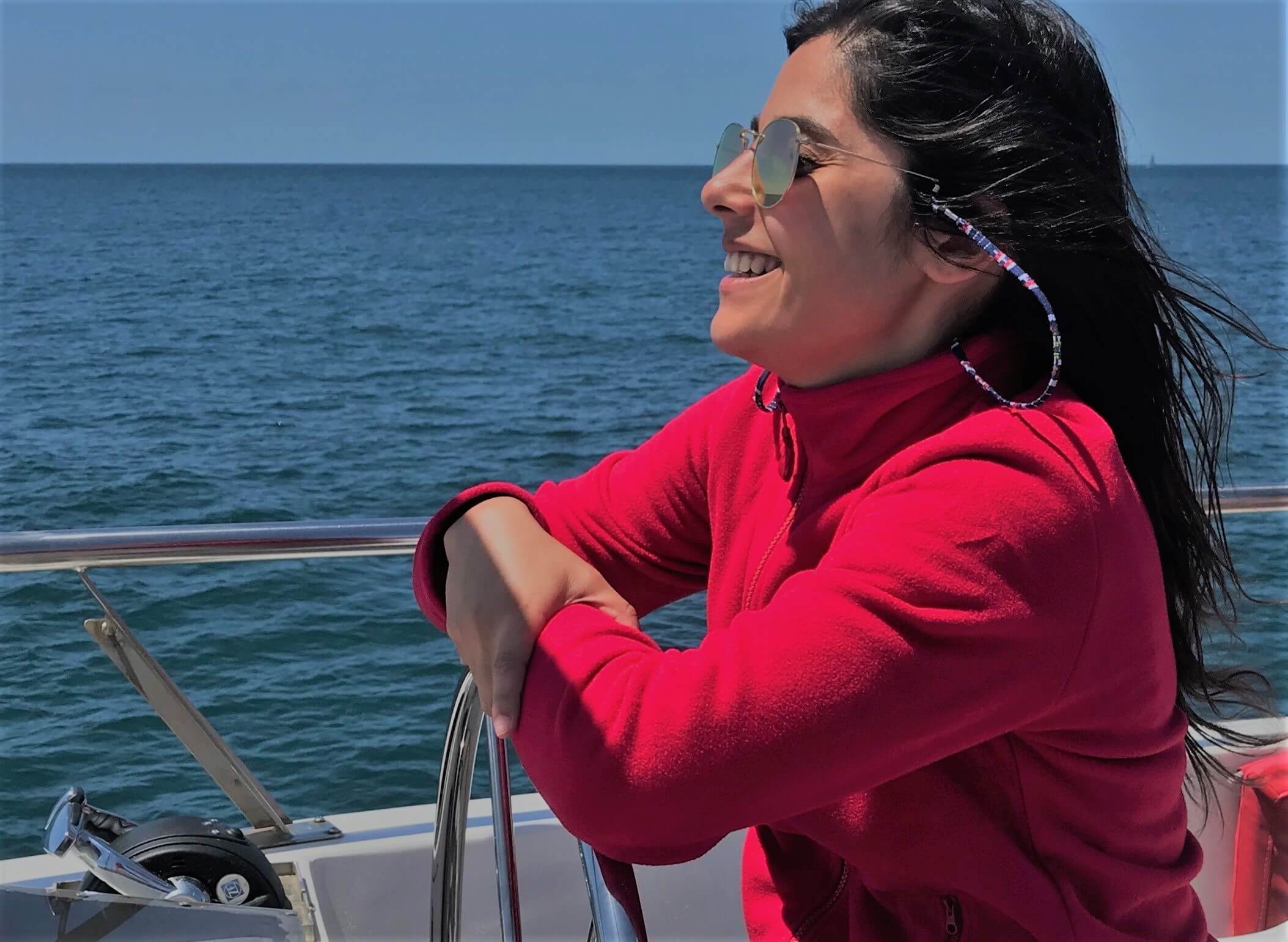Sara Sousa e Brito

Email: sara.sousaebrito@lazbw.bwl.de
Affiliation: University of Konstanz / Fisheries Research Station Baden-Württemberg, Germany.
Presentation:
I'm a marine biologist and biotechnologist. I chose my BSc based on my passions that I’ve had since a child: the ocean, biology and planet earth.
As a child, I grew up immersed in the marine environment. I spent a lot of time at the sea and my favorite pastimes were playing on the beaches, rocks and in tide pools. And, I’ve scuba-dived along the vast and diverse Portuguese coastline, since I was 12. As I grew older I absorbed myself in the field of aquatic biology, I became increasingly aware of the need for, and motivated for the conservation of our oceans, lakes, rivers and the species that inhabit them.
Being aware of the state of global fisheries and fish stocks being in continuous decline made me choose my MSc in Aquaculture at Polytechnic Institute of Leiria, and urged me to focus on the path of research. I want to integrate myself into research teams that help boost, improve and contribute to the sustainable evolution of this field, that in the future will be crucial to feed the world's population.
During the last two and a half years I worked as a research fellow at IPMA (Portuguese Institute for the Ocean and Atmosphere), where I also finished my master’s thesis in fish nutrition. During the time I collaborated with IPMA I was able to study several marine species, learning how to produce and maintain them during their entire live cycle in controlled environments, I also had the opportunity to participate in more than a few projects and gained valuable experience in several aquaculture and laboratory techniques.
As my knowledge of aquaculture deepened, so did my interest in Recirculating Aquaculture Systems (RAS) and the benefits they could bring to both production and the environment.
As an Early Stage Researcher from RASOPTA project I intend to apply all the knowledge acquired from my background in aquaculture to further the study of the implications of suspended solids on water quality, with the aim of improving the production of finfish in RAS.
ESR2: Clarify the implications of particles on microbial activity and water quality.
Aquaculture is the fastest growing food production sector in the world, and is developing, expanding or intensifying in almost every region of the planet.
The world population is growing fast and, following this trend, global consumption of fish for human consumption increased by an average of 3.1% per year from 1961 to 2017. This represents approximately twice the annual population growth rate for the same time period (FAO 2020).
According to studies by the Food and Agriculture Organization of the United Nations (FAO), fish consumption will continue to increase, challenging the production of land animals for human consumption. It is expected to reach 25 kg per capita by the beginning of this decade (2020).
The amount of water consumption and the emission of organic and inorganic matter from aquaculture systems into nature is an issue that depends directly on the type of system that is used.
Recirculating Aquaculture Systems (RAS) are a water efficient, with a high feed conversion ratio. Another benefit of RAS is the low input of pathogenic organisms from external sources and this high-yield intensive production system does not adversely affect the aquatic environment in comparison to other production systems.
With RAS technology, water inside the culture system is reused for weeks and months, requiring only small daily supplements. However, the continuous release of fish wastes requires efficient water treatment in order to minimize the accumulation of suspended solids inside the tanks.
Suspended solids in RAS present adverse effects on water quality, not only due to the damage that they can cause directly to the fish, but also because microorganisms and nutrients attached to the particles can cause indirect impacts on the system (e.g. adversities on biofilter efficiency, decrease of germ reduction efficiency, etc.). Particle-attached organisms represent a compound risk to these systems as they can raise the likelihood of infection by hiding undesired pathogens and raising the O2 consumption and CO2 production.
The aim of my PhD is the characterization of particles in RAS systems, focusing on size distribution, shape parameters and density, with the aim of assessing the direct and indirect potential impacts of organic particle loads on fish welfare, water quality, as well as the contribution of microbial decomposition process on total O2 consumption and CO2 production.
The investigations will be conducted in two different species of salmonids, Rainbow Trout (Oncorhynchus mykiss) and Atlantic Salmon (Salmo salar), and the trials performed at the Fisheries Research Station of Baden-Württemberg, as well as in several commercial RAS facilities.
